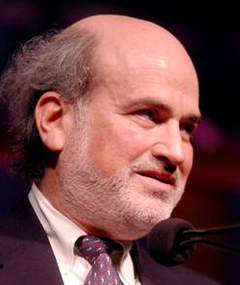| Malick, Terrence
 |
Date of birth
30 November, 1943, Waco, Texas, USA
Mini biography
Terrence Malick (November 30, 1943 – Waco, Texas, USA)
Terrence Malick is one of the great enigmas of contemporary filmmaking, a shadowy figure whose towering reputation rests almost entirely on a pair of near-perfect features released a generation ago.
A visual stylist beyond compare, Malick emerged during the golden era of 1970s American movie-making, bringing to the screen a dreamlike, ethereal beauty countered by elliptical, ironic storytelling; resonant and mythic, his films illuminated themes of love and death with rare mastery, their indelible images distinguished by economy and precision.
Born in Waco, TX, on November 30, 1943, Malick spent many of his formative summers working as a farmhand, an experience upon which he would draw extensively in his films.
(On Badlands (1973)) I tried to keep the 1950s to a bare minimum. Nostalgia is a powerful feeling; it can drown out anything. I wanted the picture to set up like a fairy tale, outside time, like Treasure Island. I hoped this would, among other things, take a little of the sharpness out of the violence, but still keep its dreamy quality.
Upon graduating from Harvard with a degree in philosophy, he entered Magdalen College in Oxford as a Rhodes scholar, but exited prior to completing his final thesis.
On returning to the U.S., he became a freelance journalist, with his byline appearing in such publications as Life, Newsweek, and The New Yorker.
While tenuring as a philosophy professor at M.I.T., Malick enrolled in a colleague’s film course. In 1969, he was accepted into the first graduating class at the American Film Institute’s Center for Advanced Studies, financing his studies by rewriting the screenplays for such films as Deadhead Miles (which did not see release until 1982), Dirty Harry, and Drive, He Said.
Upon completing his AFI studies, Malick earned his first feature screenwriting credit on Stuart Rosenberg’s Pocket Money. That same year, he also began production on his directorial debut, Badlands.
Rejecting all studio offers, Malick gathered financing through a partnership agreement with a group of several small investors, shooting with a non-union crew on a budget of less than 350,000 dollars.
The finished 1973 product, an iconic and loose retelling of the Starkweather/Fugate murder spree of the 1950s, bore little trace of its low-budget genesis, however, and was widely hailed as a masterpiece upon its release.
However, a follow-up was not quickly forthcoming, and apart from the script for Jack Starrett’s 1974 crime caper The Gravy Train, penned under the pseudonym David Whitney, Malick fell silent for five years.
When he finally resurfaced with 1978’s Days of Heaven, the critical praise was even more thunderous. Shot with impeccable beauty by cinematographer Nestor Almendros (who won an Academy Award for his work), the tale of wheat harvesters in the Texas Panhandle at the turn of the century was an elegy for America’s past, a heartland corrupted by greed and progress.
After the picture’s release, Malick, who won a Cannes Best Director award for the film, relocated to Paris, where he lived in virtual seclusion.
Finally, after nearly two decades of silence, in 1997, Malick announced his return to filmmaking with an adaptation of the James Jones novel The Thin Red Line.
The highly anticipated 1998 film, while not the long-awaited masterpiece many were expecting, met with positive reviews and earned Best Director and Best Adapted Screenplay Oscar nominations for Malick.
Filled with the kind of stunning imagery that defined Days of Heaven, the film effectively convinced many observers that although Malick may have been lost to Hollywood for years, he had in no way lost his touch. -- allmovie
Director - Selected filmography
-
The Tree of Life (2011)
-
Badlands (1973)
|

